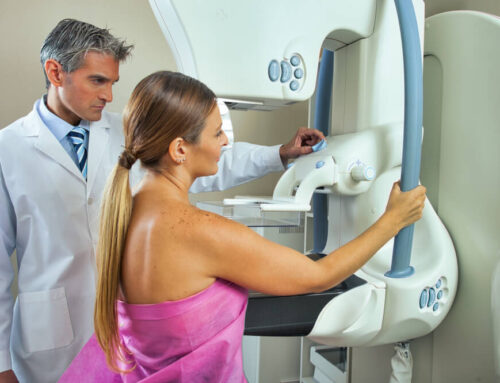Welcome to our Breast Care Center Miami, where your well-being is our top priority. In recent years, there has been growing concern and interest surrounding a condition known as Breast Implant Illness (BII). As advocates for women’s health, we believe it is crucial to provide comprehensive information on this topic.
As such, in this blog post, we will delve into the definition of Breast Implant Illness, its symptoms, potential causes, and the side effects associated with breast implants.
What is Breast Implant Illness?
Breast Implant Illness, commonly referred to as BII, is a term used to describe a range of symptoms that some individuals with breast implants may experience. These symptoms can affect both physical and mental well-being, and while the medical community is actively researching and discussing BII, there is still much to be understood.
Despite the increasing awareness of Breast Implant Illness (BII), it’s essential to recognize that not every person with breast implants will develop these symptoms. The manifestation of BII is highly variable, with some individuals experiencing mild discomfort while others may face more pronounced challenges. Furthermore, the dynamic nature of BII underscores the importance of ongoing dialogue between patients and healthcare providers to monitor and address potential concerns. As research continues to unfold, our commitment to promoting a comprehensive understanding of breast health remains unwavering, empowering individuals to make informed decisions about their well-being.

Breast Implant Illness Symptoms
Recognizing the symptoms associated with Breast Implant Illness (BII) is paramount for early detection and taking appropriate action to address potential concerns. Individuals who may be experiencing BII could observe a diverse array of symptoms, each with its own impact on both physical and mental well-being. Here’s a closer look at the potential symptoms:
Fatigue: Persistent tiredness and lack of energy.
Fatigue in individuals with BII can extend beyond normal tiredness, often becoming a pervasive and unrelenting sense of exhaustion. This may interfere with daily activities, affecting work, social interactions, and overall quality of life.
Joint and Muscle Pain: Aches and discomfort in the joints and muscles.
BII may contribute to joint and muscle pain that goes beyond the usual discomfort associated with physical exertion. Individuals may experience persistent aches, soreness, or stiffness, impacting mobility and causing discomfort even during rest.
Cognitive Difficulties: Difficulty concentrating, memory issues, and “brain fog.”
Cognitive challenges associated with BII can manifest as difficulties in concentration, memory lapses, and a feeling of mental haziness often described as “brain fog.” These symptoms may impede daily tasks, work performance, and overall cognitive function.
Skin Issues: Rashes, redness, or other skin problems.
Skin-related symptoms can include unexplained rashes, redness, or other dermatological issues. These manifestations may not be limited to the area around the implants, underscoring the systemic nature of BII and its potential impact on skin health.
Digestive Issues: Unexplained gastrointestinal problems.
BII may contribute to a range of digestive issues, causing discomfort and disruption to normal gastrointestinal function. Symptoms such as bloating, irregular bowel movements, or unexplained stomach upset can be indicative of an underlying issue.
Autoimmune-like Symptoms: Symptoms mimicking autoimmune disorders.
Some individuals with BII may experience symptoms that mimic those seen in autoimmune disorders. This can include a wide range of manifestations, such as joint pain, fatigue, and skin problems, further emphasizing the complex and varied nature of BII.
It is crucial to highlight that these symptoms can vary widely among individuals, and not everyone with breast implants will experience BII. As such, the presence of these symptoms does not automatically imply a direct link to breast implants. If you suspect that you may be experiencing symptoms associated with BII, seeking the expertise of a healthcare professional is recommended. A thorough evaluation and open communication with your healthcare provider will help determine the most appropriate course of action for your individual health needs. Early detection and proactive management are essential steps in ensuring your overall well-being.
What Causes Breast Implant Illness?
The underlying causes of Breast Implant Illness (BII) remain a subject of intense research and medical exploration. At present, the medical community has not definitively pinpointed the exact mechanisms triggering BII, rendering it a complex and multifaceted area of study. Nevertheless, several theories have emerged, with a prominent one centering around the body’s immune response to breast implants.
The immune system plays a pivotal role in defending the body against foreign substances and potential threats. When breast implants are introduced into the body, they represent foreign objects that can elicit an immune response. Some experts theorize that this immune response may extend beyond the localized area of the breast implants, triggering systemic symptoms associated with Breast Implant Illness.
In essence, the body’s immune system may recognize the implants as foreign entities, setting off a cascade of reactions that could manifest as a range of symptoms affecting various bodily systems. These symptoms might include fatigue, joint and muscle pain, cognitive difficulties, skin issues, digestive problems, and symptoms reminiscent of autoimmune disorders. The complexity of the immune response and the diversity of symptoms make establishing a direct cause-and-effect relationship challenging.
It is crucial to underscore that while associations between symptoms and breast implants have been observed, causation is a nuanced and intricate matter. The body’s response to implants is highly individualized, and not every person with breast implants experiences BII. Moreover, the presence of symptoms does not automatically implicate breast implants as the sole cause, as various factors, including pre-existing health conditions and genetic predispositions, can contribute to symptomatology.
The medical community is actively engaged in ongoing research to unravel the intricacies of Breast Implant Illness. Researchers are exploring factors such as the composition of implants, the potential role of bacterial contamination, and genetic susceptibilities that may influence an individual’s response to implants. As our understanding of immunology and the interactions between the body and foreign materials advances, we anticipate gaining more insights into the complexities surrounding BII.

Side Effects of Breast Implants
Understanding the potential side effects of breast implants is an essential aspect of informed decision-making. Breast augmentation is a common cosmetic procedure, and while many individuals experience positive outcomes, there are potential risks associated with the surgery. Common side effects include:
- Pain and Discomfort: Temporary pain and discomfort after surgery are normal.
- Infection: Risk of infection at the surgical site.
- Changes in Sensation: Alterations in nipple or breast sensation.
- Scar Tissue Formation: Formation of scar tissue around the implant (capsular contracture).
- Implant Rupture or Leakage: The possibility of implant rupture or leakage over time.
It’s crucial for individuals considering breast augmentation to have open and honest discussions with their healthcare providers about potential risks and benefits.
Finishing Thoughts
As advocates for women’s health, the experts at Breast Care Center Miami aim to provide informative and supportive resources for individuals navigating breast health concerns. Breast Implant Illness is a complex and evolving topic, and we encourage those with questions or concerns to seek guidance from healthcare professionals.
Remember, open communication with your healthcare provider is key. If you suspect you may be experiencing symptoms associated with Breast Implant Illness or have concerns about the side effects of breast implants, schedule a consultation to discuss your individual health history and explore the best course of action for your well-being.
At our Center, we prioritize your health and strive to empower you with the knowledge needed to make informed decisions about your breast health journey. Stay informed, stay healthy, and take charge of your well-being.






